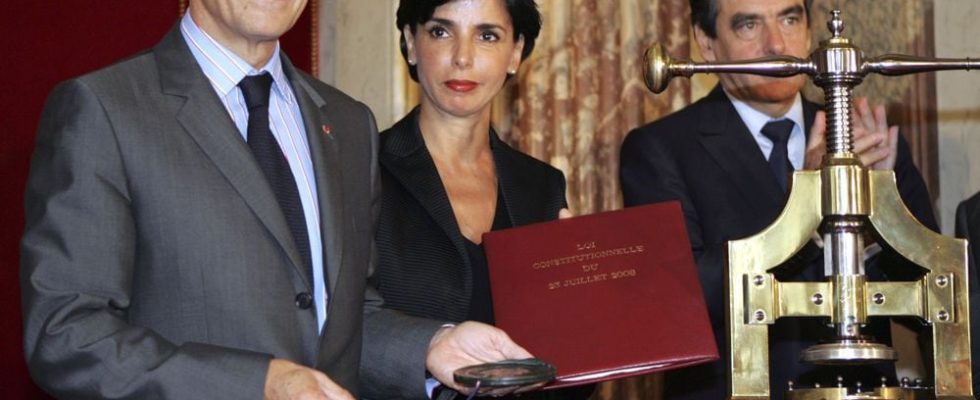For the seventeenth time in sixty-six years, all the parliamentarians – who today number 925 – will meet in Congress in the South wing of the Château de Versailles. And this Monday, March 4, the issue is highly symbolic: it involves bringing voluntary termination of pregnancy (abortion) into the Constitution. To do this, the two chambers combined must decide by a three-fifths majority of the votes cast.
And for good reason, under article 89 of the Constitution which sets the rules for constitutional revision, the President of the Republic has the choice between submitting the constitutional revision to the people by referendum or relying on parliamentarians. Emmanuel Macron, like many of his predecessors, opted for the second option.
Twenty-four revisions since 1958
Because since 1958, the date of the promulgation of the Constitution of the Fifth Republic, the text thought up by General de Gaulle and the one who would become his Prime Minister Michel Debré, has undergone numerous modifications. Twenty-four in total. The first modification was voted on June 4, 1960. This aimed to make the independence of African States compatible with their membership in the Community formed with France. And the most famous of all being, until then, the 1992 revision which allowed the ratification of the Maastricht Treaty, a founding treaty of the EU.
In total, the European project will have required no less than six constitutional revisions. All were done by parliamentary vote with the exception of the last, carried out in 2005. The French president at the time, Jacques Chirac, made the audacious bet of soliciting the vote of the people to achieve the ratification of the Treaty establishing a Constitution for the Union. But on May 29, 55% of French people rejected the text, making Title XV of the Constitution a title that had become irrelevant.
Jacques Chirac was not his first attempt. On September 24, 2000, he sought the approval of the French people for the first time to reduce the presidential term from seven to five years. More than seven out of ten French people went to the polls and gave him a “yes”. Before Jacques Chirac, only General de Gaulle had relied on the French to touch the sacrosanct Constitution. It was in 1962, to elect the President of the Republic by direct universal suffrage. The “yes” vote won at 62%.
Reforms to modernize institutions
It must be said that most constitutional revisions concern modifications to institutions or the functioning of these. Thus, among the constitutional revisions, there is the modification of the dates of parliamentary sessions in 1963, the expansion of the possibilities of referral to the Constitutional Council in 1974, or even the conditions for the election of the President of the Republic in the event of death or impediment of a candidate in 1976 under Valéry Giscard d’Estaing.
As soon as he arrived at the Élysée, Nicolas Sarkozy launched into a large-scale revision, the “most important reform of the Constitution since 1962”, he proclaimed in a speech delivered on October 1, 2008. The new president of the République wishes to “modernize the institutions of the Fifth Republic”. And to do this, a host of new products comes out of his hat.
Among the most emblematic: the limitation of the exercise of the President of the Republic to two consecutive mandates. But also the authorization for him to speak before Parliament. In addition, with this reform, independence and freedom of the press made their grand entry into the 1958 text, alongside two new tools: the shared initiative referendum (RIP) and the Priority Question of Constitutionality (QPC) . The first allows parliamentarians to call a referendum without going through a majority vote in parliament. The second benefits any litigant who wishes to challenge the constitutionality of a legislative provision.
Well, you might not have missed it. The ministers of the Borne government having been dismissed during the last reshuffle were able to regain their seats as deputies in the National Assembly. Vestige of a 2008 reform which allows former ministers elected in a constituency to automatically become a deputy again after leaving the government.
